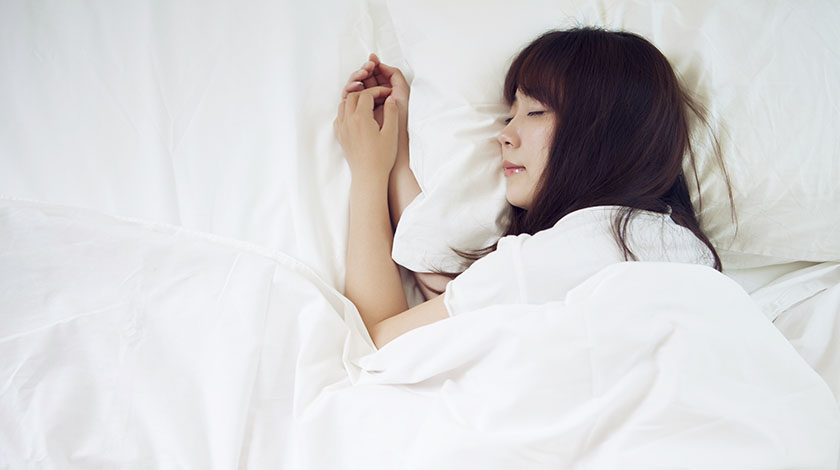Nothing is worse for your mood than a sleepless night. If you are kept up all night by traffic noise, anxiety about work commitments or even your spouse snoring away noisily but blissfully next to you, the results are you’ll spend the next day cranky and curt.1
A grumpy demeanor isn’t the only side effect of a bad night’s sleep. A lack of sleep affects your ability to think, plan and empathize as it impedes your brain function. Have you noticed that when you’re tired, you tend to be more forgetful, error-prone, tongue-tied and slow to react? These are all common symptoms of a sleepless night!2 And in a vicious cycle, the more mistakes you make, the more frustrated you get, causing your mood to sink.
Mood and sleep
Lack of sleep has been linked to feelings of frustration, anxiety, stress and even depression. While a one-off insomniac episode is probably nothing to worry about, persistent insomnia can contribute to mental illnesses such as depression and anxiety disorders.3 Insomnia itself is a recognized psychiatric condition. Conversely, patients suffering from depression consistently report that regular sleep improves their symptoms.4
While lack of sleep affects mood, mood also affects sleep. Feeling nervous, fearful or angry makes it harder for your mind to relax, as these negative emotions trigger the “fight or flight” response in your body, which in turn cause the release of hormones such as adrenaline.3 The end result? You feel jumpy, energetic and alert at the very time you should be settling in for bed! Thus, the secret to a good mood is adequate sleep, and the secret to better sleep is a good mood. It’s clear that mood and sleep are bedfellows.
The secret to a good night’s rest
If you’re struggling with interrupted, inadequate or low-quality sleep, it’s time to make a change. Here are our tried-and-tested secrets for getting a restful night.
- Make your bedroom conducive to sleep. Keep the lighting low and avoid white and blue light. Blue light from the screens of our computers, smartphones and tablets is known to stimulate brain activity and interfere sleep. In addition, try to keep the temperature in your bedroom around 24 to 25 degrees Celsius, which is the optimal temperature for sleep.2
- Maintain a regular sleep pattern. Getting up and going to bed at the same time every day establishes a clear “sleep cycle”, so when your regular bedtime comes around, your body knows when to release melatonin, a hormone that makes you “feel sleepy”.2
- Get active. Vigorous exercise not only helps you sleep better at night, but leads to a significant uplift in mood by curbing feelings of stress and worry, and increasing self-esteem and confidence.5
We shouldn’t underestimate the effects of mood on our sleep and conversely, our sleep on our mood. Take the above measures into consideration and improve both simultaneously for a healthier life.
Sources
- Barnett KJ, Cooper NJ. The effects of a poor night sleep on mood, cognitive, autonomic and electrophysiological measures. J Integr Neurosci. 2008; 7(3): 405-20.
- Sleep Research. Sleep Research Centre, Loughborough University. Visited 19 September 2017.
- Sleep Problems. Mind. Visited 19 September 2017.
- Sleep disorders. The Edinburgh Sleep Centre. Visited 19 September 2017.
- Exercise and mental health. Mental Health Foundation. 19 September 2017.
© Cigna Healthcare 2023
Information provided in this article is intended for health and fitness purposes only and is not intended for use in the diagnosis of disease or other conditions, or in the cure, mitigation, treatment or prevention of disease (see Terms & Conditions for details). Any health-related information found in this article is available only for your interest and should not be treated as medical advice. Users should seek any medical advice from a physician, especially before self-diagnosing any ailment or embarking on any new lifestyle or exercise regime. Any information contained in this article may not be suitable, accurate, complete or reliable. Cigna Healthcare accepts no responsibility for the content or accuracy of information contained on external websites or resources, or for the security and safety of using them. "Cigna Healthcare" and the "Tree of Life" logo are registered trademarks of Cigna Intellectual Property, Inc. in the United States and elsewhere, licensed for use. All products and services are provided by or through operating subsidiaries, and not by The Cigna Group.






